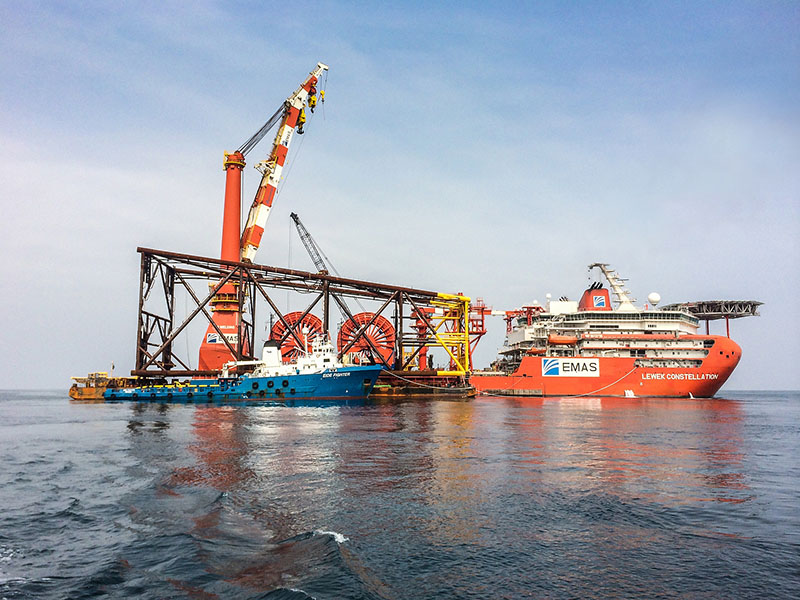The Houston Chronicle carried news of the Emas Chiyoda Subsea bankruptcy on the front page of its Feb. 28 business section. The company is owner and operator of a group of subsea construction vessels.
The announcement is not good news for the company or its 200 Houston employees. It is not good news for the offshore service vessel industry either. But more troubling is the litany of company bankruptcies and financial hardships leading up to this event, together with the likelihood that they will continue as oil prices remain well below 2014 levels.
The continuation of depressed oil prices, “expected to average $57.52 a barrel in 2017, even if OPEC extends its supply cuts and global demand continues to improve,” noted Reuters, will sustain the progression of bankruptcies and financial distress. It is particularly intense on the Gulf Coast.
While discussing service companies in the Louisiana ports of Iberia and Terrebonne, David Rabalais, executive director at the Port of Terrebonne in Houma, noted in The Acadiana Advocate that “they’re trying to pick up work anywhere they can … I’m sure they’re trying to get work all over the world.”
For many, however, the work is just not there, no matter how hard they try. And it won’t likely be there any time soon. According to a recent report from New York-based AlixPartners (“Global oil & gas industry outlook for 2017: the three Rs – restructurings, realignment, and some rebuilding, February 2017”), the U.S. upstream industry would need oil prices to climb to $80 bbl. and stay there for cash flows to become truly “healthy.” Until that happens, the OSV market will remain in the toilet.
In few places is it more obvious than with Tidewater, the largest OSV operator in the world. Last summer, CEO Jeff Platt warned that the New Orleans-based company might well default on part of its debt, despite having received payment extensions on some of its notes. Bankruptcy was mentioned often. A second set of waivers, effective until March 3, was granted in late January. Then on Feb. 7, Tidewater reported third-quarter results. They were not encouraging. The company reported a third-quarter loss (for the period ended Dec. 31, 2016) of $297.7 million, or $6.32 per common share, on revenues of 129.2 million. For the same quarter in 2016, losses were $19.2 million, or 42 cents a share, on revenues of $218.2 million.
Clearly, things must change at Tidewater and other OSV operators. The threat of bankruptcy is a cloud hovering over the entire Gulf Coast, with no front in sight to clear it out.




